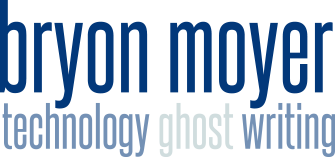Writing for someone else means putting words in their mouths. I may say something in a piece that I write, but I’m saying it on someone else’s behalf. Heck, I may even personally disagree with what I’m saying, but, at that moment, that doesn’t matter.
So it stands to reason that everything that I write for someone else has to go through a thorough review. That can actually be one of the more time-consuming parts of a project – and it’s certainly the one thing that someone who has hired me will need to spend some time on.
There are many things that can be part of a review:
- Are the facts correct?
- Does the basic point or thesis come through?
- Is the flow natural and effortless?
- Is the language correct?
- Is the tone appropriate?
- Are there any inadvertent typos? (I do edit this myself, but things sometimes escape…)
Review Results
When I get a reviewed piece back, it will have comments on one or more of those items. In a very rare case, they’ll say, “It’s good to go as is.” Sometimes it’s, “We needed a few tweaks; we made them, and we’re done.”
But, more often, there are some things that need changing – fortunately, usually not too many. That’s why we do the outline thing first – to catch high-level issues early, before I commit them to prose.
At the other end of the range, however, I’ll very rarely get a piece back with tons of mark-ups. Word choices have changed, sentence structure has changed – there’s blood all over the page. As a professional, this is just part of the deal, although seeing that much red doesn’t make you feel good. And it makes me wonder, why did I need so many changes?
And I realized that, in these cases, I’ve been hired by someone with a very strong and personal voice. It’s not that they couldn’t have written the thing themselves; they simply didn’t have time. The challenge there is that I can adopt a tone and a flow and a set of facts, but I can’t adopt a personality.
So if you need some writing done, I can do it whether or not you have a strong voice of your own. But we’ll probably circle a couple more times as we turn my altered voice into your unaltered voice.
Again, this doesn’t happen frequently, but I know that, in the past, I’ve been a pretty ruthless editor. If you see yourself the same way, that’s fine. The original draft may be correct in every other way, but we’ll definitely need to work together to dial in the voice.
